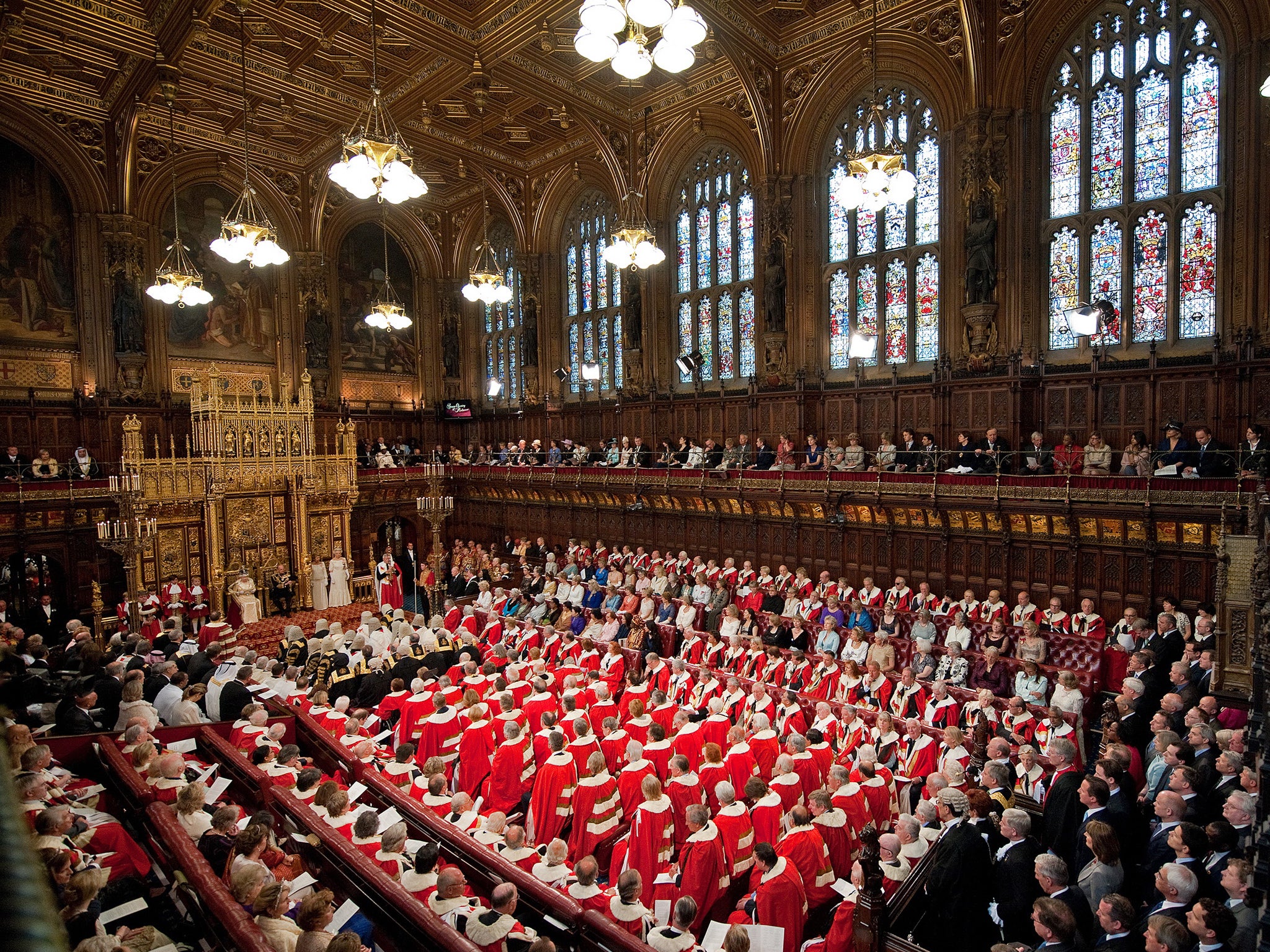The House of Lords is in desperate need of reform. Here's how to do it
Send your letters to letters@independent.co.uk

Your support helps us to tell the story
From reproductive rights to climate change to Big Tech, The Independent is on the ground when the story is developing. Whether it's investigating the financials of Elon Musk's pro-Trump PAC or producing our latest documentary, 'The A Word', which shines a light on the American women fighting for reproductive rights, we know how important it is to parse out the facts from the messaging.
At such a critical moment in US history, we need reporters on the ground. Your donation allows us to keep sending journalists to speak to both sides of the story.
The Independent is trusted by Americans across the entire political spectrum. And unlike many other quality news outlets, we choose not to lock Americans out of our reporting and analysis with paywalls. We believe quality journalism should be available to everyone, paid for by those who can afford it.
Your support makes all the difference.Surely the publication of David Cameron’s resignation honours list will at last bring about the reform of the House of Lords? This should not be difficult. The hereditary peers could remain as at present, while the others could vote among themselves to elect 120, divided into groups of 24, to serve in the House of Lords. After one year the first group of 24 could stand down or offer themselves for re-election. Each year the process will be repeated, until the fifth group. Thereafter each group will have served for five years when the time for an election comes round.
Peers could still be appointed, but they would not serve in the House of Lords and could not claim any fees. This arrangement would drastically cut costs but at the same time would give continuity and an opportunity to introduce new blood.
William W Scott
North Berwick
Any debate about the House of Lords must begin with an honest statement of its background and purpose. The House evolved over centuries as a forum in which the rich and influential could be consulted on laws and policies. To suggest otherwise is to allow Victorian moralising to overcome rational thought.
It follows that the need for the House of Lords must be judged on whether consulting such people is worthwhile. This is true if the alternative is that their opposition would hamper the implementation of laws and policies.
The House of Lords as it existed to 1911 offered the rich a veto on laws. Since then, they have been consulted. It has been a form of institutional corruption. The question facing the honest is therefore whether this arrangement is preferable to the likelihood of covert corruption.
Peter Holland
Address withheld
Cobweb-ridden old Labour: when in doubt, bleat on about the unrepresentative House of Lords. Thanks largely to Labour’s opposition to proportional representation, the real problem is the unrepresentative House of Commons. The fact that PR was voted down by one of David Cameron’s artfully manipulated referendums surely makes it more desirable than less.
Richard Humble
Exeter
I am astonished at the storm of bile that has erupted over the peerage awarded to Shami Chakrabarti. That such vile things should be said about such an admirable person just goes to show the state of politics at the moment. I am only sorry that she did not agree to stand for a Commons seat. She would wipe the floor with the current crop of lacklustre careerist nonentities.
Linda Ellis
Hull
Labour women are under attack
I sympathise with Beth Foster-Ogg and am not in the least bit surprised by her account of being “hectored” by Labour MP Caroline Flint. Her complaints echoes that of some 60 or so feminists who recently wrote into The Independent to criticise the smearing of “legitimate political opposition as gender based intimidation”. My feminist colleagues have a now commonly used term for female professional politicians who vote to bomb indigenous mothers, cut welfare to lone parents and education opportunities that historically also benefited marginalised young women. Rather than feminists, these women who only invoke female victimhood in support of their own personal careers while refusing to show solidarity with women of colour, working-class mothers and young female students, are apparently known pejoratively as “femicrats”.
Dr Gavin Lewis
Manchester
Not politics as usual
To think I used to believe politics was boring! Now so much has happened on both sides of the pond. I listened to Donald Trump's nomination acceptance speech and it reminded me of my old gran's rebuke: “Empty vessels make the most noise.”
Barbara MacArthur
Cardiff
Be safe, not sorry
Regarding Simon Calder's piece on aircraft safety, why not lock the lockers? Let the captain/crew have the switch and the problem is solved, isn't it?
Charles Matthews
Address withheld
Banish the Brexit blues
I am getting very tired of this paper's continual bleating about the negative effects of Brexit. It shows a complete lack of respect for the process of democracy, and the people who voted to leave. There is a supercilious attitude prevailing, which I find unacceptable.
Better, surely, to accept the decision of the majority and get on with creating a positive and forward-thinking atmosphere. Harkening back to what might have been is counterproductive and can lead to the creation of a climate of defeatism. To quote the old Broadway musical, let’s accentuate the positive and eliminate the negative.
Murray Stewart
Evercreech, Somerset
Join our commenting forum
Join thought-provoking conversations, follow other Independent readers and see their replies
Comments